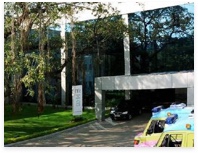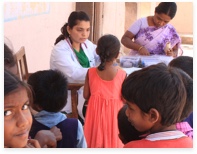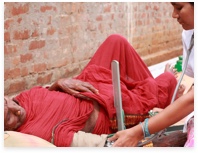India accounts for nearly 20% of the world’s maternal deaths, with a pregnant mother dying every 5 minutes. This grim situation can be explained by the fact that basiclifesaving medical care and healthcare professionals are often unavailable to women giving birth particularly in rural areas. More than half a million women die every year during child birth or pregnancy and most of these deaths are preventable. It was with these figures in mind that the RCH Program was started in Mahbubnagar and Vishakapatnam
Reproductive and Child Health (RCH)

NICE Foundation believes that the survival rate for the women and children could change drastically if they could be provided with an effective ante-natal, post-natal care. Safe deliveries could be ensured and basic care to the new born could be given. An innovative low-cost model was created to provide the best services to this rural and tribal population, for whom healthcare was an elusive concept.
NICE Foundationsuccessfully ran RCH (Reproductive and Child Health) Program at Nagarkurnool in Mehaboobnagar district, called the CHAMPION Trial, Community Health and Medical Provision: Impact on Neonates. This was a research trial with support from Effective Intervention and London School of Hygiene and Tropical Medicine.
The result of the CHAMPION Trial in reducing new-born mortality has been appreciated and the timely action reduced 25% of neonatal mortality in these regions. This project has now been expanded to benefit about 433 villages in Nagarkurnool division in 13 mandals as CHAMPION Plus.
Under the program a vast data monitoring team was set up with an objective to monitor and help expectant women. The women are monitored right from the time they miss their monthly periods, through positive pregnancy, successful delivery and post-delivery. In case of unfortunate death of the new born, a verbal autopsy is conducted with the deceased family members in order to understand the sequence of events pertaining health that led to the cause of death.
Overall, 12500 pregnancy outcomes have been monitored till October 2016 since the inception of this unit. Besides this, there are 72,500 potential women who are monitored closely under the age group of 12-49 years.



